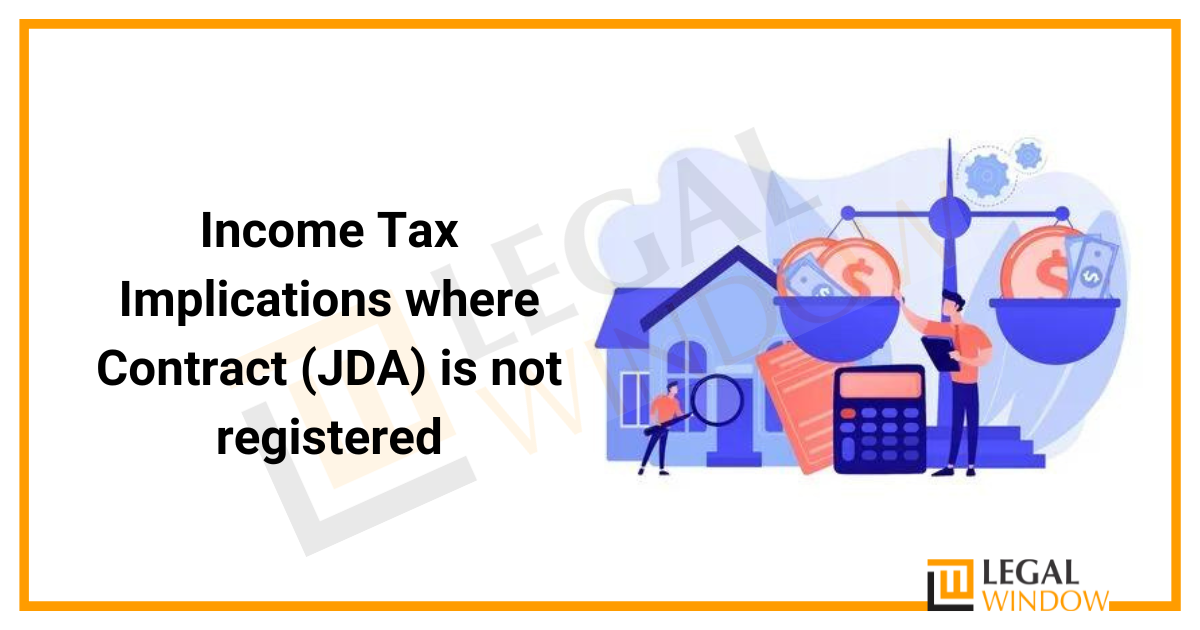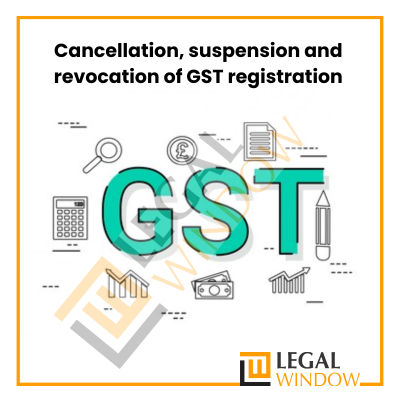
The Joint Development Agreement (‘JDA’) is the most common and most popular method of arrangement to construct buildings in our country. It is a preferred form for both the Developer and the Owner of the Land. However, there are issues relating to the JDA’s taxation under the Income Tax Act, 1961. This article will discuss the taxability of the Joint Development Agreement.
| Table of Contents |
Taxability on the developer’s hand
The income earned by the Engineer under the JDA, in the form of sales considerations of his share in the developed area is regarded as ‘business revenue’ and is taxed following applicable provisions.
Taxability at the hands of the landowner
The taxability arising from the transfer of the title deed from the landowner to the JDA developer has been the subject of litigation issues. The JDA model is often challenged by Inspecting Officers due to tax-related uncertainty at the hands of landowners and the determination of the amount of taxable consideration received by the Landowner. In 2017, a new provision of Section 45 (5A) of the IT Act is introduced. Therefore, the official position for the payment of capital gains can be divided below.
- Before the amendment of the Finance Act, 2017;
- Following the amendment of the Finance Act, 2017.
Taxability of Joint Development Agreement applied till 31.03.2017 (AY 2017-18)
Before 01.04.2017, the maximum profit was taxable under the provisions of section 45 of the Income Tax Act, 1961 in the year in which the transfer took place except in certain circumstances. The definition of ‘transfer’ u/s 2 (47) (v), inter alia, includes any arrangement or transaction in which any rights granted to form part of a contract referred to in section 53A of the Property Transfer Act, 1882 (4 of 1882) although the legal right has not been transferred. In such a case, the execution of a JDA agreement between the owner of the immovable property and the developers resulted in a substantial tax liability in the hands of the owner during the year the agreement was entered into, and the possession of the immovable property is given to the developer to develop the project.
The tax authorities consider this to be the point at which the u/s45 (1) landowner was required to pay Capital Gain tax against the fact that the landowner was, in fact, not considered at the time. Conversely, real receipts or considerations begin to accumulate only after the area has begun to develop or grow. So the taxable event was not simply a matter of signing an agreement. It, therefore, caused real hardship for landowners to pay income tax in their pocket without realizing the real considerations. Not only that, the authorities have determined the fair market value of the project including land as it is assumed that u/s 50D of that transfer when the project is in the papers at the time of signing the JDA, is not realistic. The provision of the above law as it existed till the date of 31.03.2017 was vague and resulted in several cases.
Taxability of Joint Development Agreement applied on or after 01.4.2017 (AY 2018-19)
But to alleviate the real difficulties the landowner may face in repaying the cash benefit, it was proposed in the 2017 Budget inclusion of a new subsection (5A) in section 45. The same is done from 01.04.2017 onwards i.e. from F.Y.2017-18 onwards forward. Let us understand the new provisions of section 45 (5A) of the Income Tax Act 1961.
According to this new provision, individuals/HUFs who enter into a Joint Development Agreement with a developer are liable for a profit annually when a certificate of completion of every project or part of it is issued by a competent authority. Therefore, the tax liability is deferred from the year of the land transfer to the year of project completion. In addition, the Value of the Stamp (SDV) of land or property or both, of the landowner’s share in the project, at the date of issue of the said certificate, as increased by the consideration received in cash, if any, will be taken as the total consideration.
However, if the landowner transfers his or her share of the project before or on the date of issue of the said certificate, the cash benefit will be recognized as revenue for the previous year when the transfer occurs. Also, the provision of section 45 (5A) shall not apply in such cases, and thus the acquisition of other general provisions of section 45 as applicable before the introduction of a new section must be made. Also, a subsequent amendment to section 49 is made to provide that the cost of acquisition of a project in a land or building project or both, in the hands of the landowner will be the amount considered as the total consideration under the said provision of section 45 (5A).
Newly inserted sub-section 5
The summary of the newly inserted clause 5A is set out below;
- This applies to JDA done after April 1, 2017.
- It applies to individual assesses and HUF.
- A building or land is considered a capital asset by the owner of the land.
- It will only apply if a registered agreement or title is made.
- The tax liability is extended until the project is completed.
- The Landowner shares the stamp duty value of Land or Property, on the day on which the certificate is issued, the proceeds will be regarded as the total consideration.
- It does not apply when the assignment is transferred before the project is completed. It will not work when the Landlord gets all the consideration for sale in cash.
Final words
From the taxability of the Joint Development Agreement, it is analyzed that although the landowners’ debt in terms of the newly added clause is deferred until the project is completed they still have to be careful in writing the JDA. A small slip may give the AO the impression that there is a ‘transfer’ on the date of the agreement itself in terms of section 2 (47) read with section 53A of the Property Transfer Act, 1882.
CA Pulkit Goyal, is a fellow member of the Institute of Chartered Accountants of India (ICAI) having 10 years of experience in the profession of Chartered Accountancy and thorough understanding of the corporate as well as non-corporate entities taxation system. His core area of practice is foreign company taxation which has given him an edge in analytical thinking & executing assignments with a unique perspective. He has worked as a consultant with professionally managed corporates. He has experience of writing in different areas and keep at pace with the latest changes and analyze the different implications of various provisions of the act.
Categories
- Agreement Drafting (23)
- Annual Compliance (11)
- Change in Business (36)
- Company Law (147)
- Compliance (88)
- Digital Banking (3)
- Drug License (3)
- FEMA (17)
- Finance Company (42)
- Foreign Taxation (6)
- FSSAI License/Registration (14)
- GST (117)
- Hallmark Registration (1)
- Income Tax (199)
- Latest News (34)
- Miscellaneous (164)
- NBFC Registration (8)
- NGO (14)
- SEBI Registration (6)
- Section 8 Company (7)
- Start and manage a business (20)
- Startup/ Registration (126)
- Trademark Registration/IPR (40)
Recent Posts
- Understanding the provisions of GST Audit and Adjudication April 20, 2024
- April, 2024 Tax Compliance Tracker: Income Tax & GST Deadlines April 18, 2024
- Managing Director & Whole Time Director in a Private Limited Company April 17, 2024
About us
LegalWindow.in is a professional technology driven platform of multidisciplined experts like CA/CS/Lawyers spanning with an aim to provide concrete solution to individuals, start-ups and other business organisation by maximising their growth at an affordable cost.








